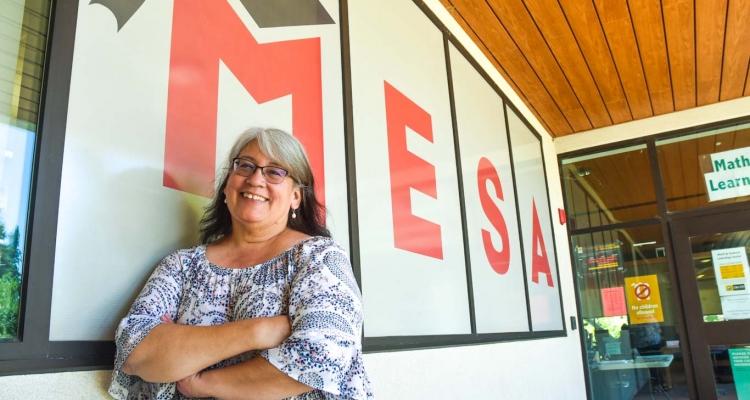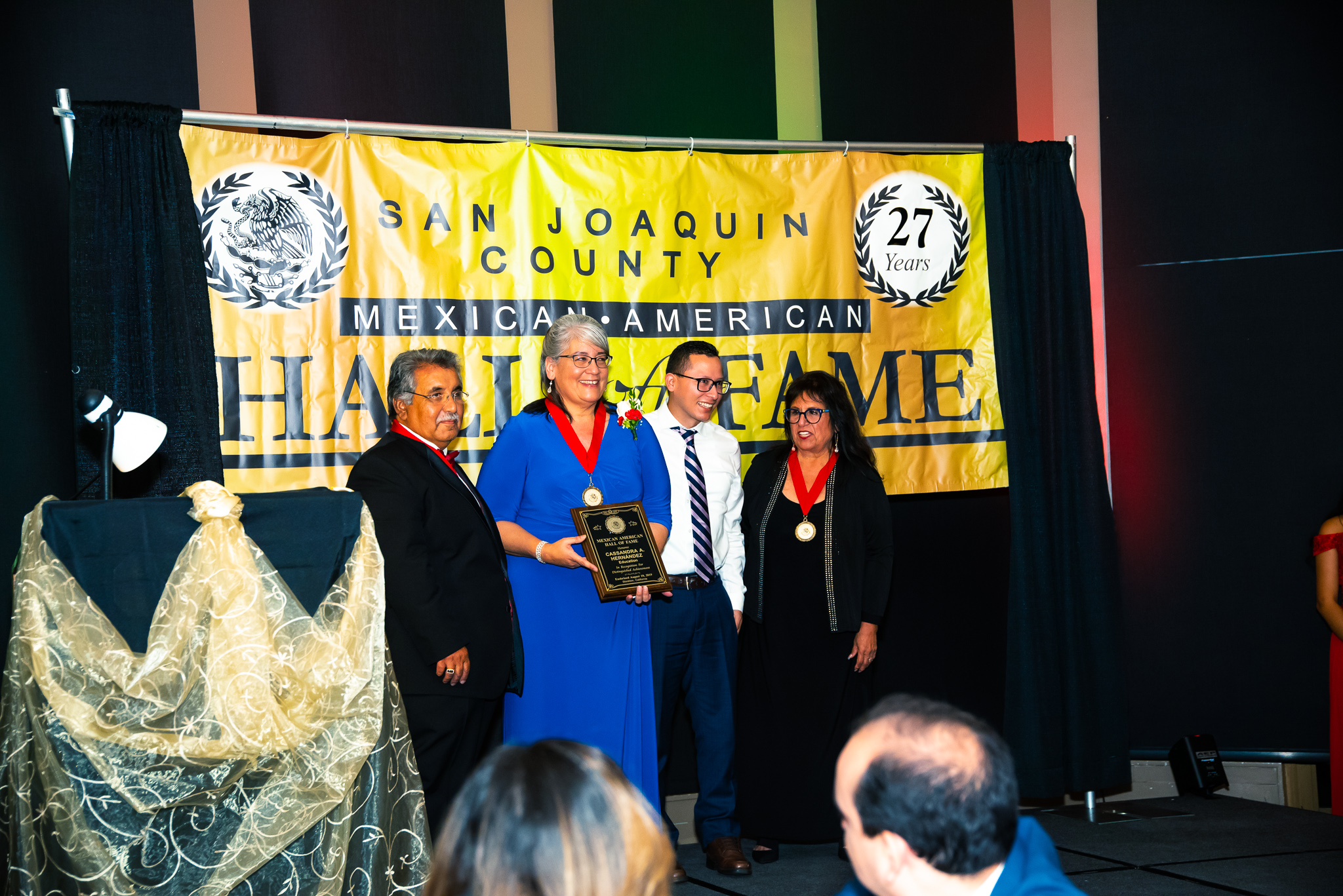
The box of tissue in Cassandra Hernández’s office isn’t just for her students.
It’s for Cassandra, too. This “Mama MESA” has laughed and cried alongside untold numbers of first-generation college students for nearly a decade. They sit in a chair next to her desk, sharing their most personal challenges and cherished dreams.
With her guidance they have gone on to become engineers, chemists and research scientists. And their success helps explain why Cassandra was recently inducted into the San Joaquin County Mexican American Hall of Fame.
Question: You were a first-generation college student yourself. Why did you go to college?
Answer: “My mom said, ‘Get out of the kitchen, you have to do your homework.’ It was always school first. To this day, I don’t know how to cook.”
Q: What challenges did you face?
A: “I did well my first couple of years. I was going to be a doctor. Then I got to calculus and it was all bad. I felt like a total failure and I left.”
Q: What brought you back?
A: “My friends called me from the La Raza student organization at San Francisco State. They said, ‘We’re graduating, what about you?’ That really woke me up. So I went back to school.”
Congratulations to my colleague Cassandra Hernandez, Director of San Joaquin Delta College’s MESA Program, and to all of the other 2019 Mexican American Hall of Fame Inductees! pic.twitter.com/HI6lTVG9Tb
— Lisa Cooper Wilkins (@DrCooperWilkins) August 11, 2019
Q: What was your first introduction to San Joaquin County?
A: “I joined Medicorps. They sent me to French Camp for a summer to provide health education for children of migrant workers. We talked about nutrition and how to care for your teeth. We made piñatas that were full of fruits instead of candy and worked with parents. It was a lot of fun, but I saw a lot of things that didn’t make sense. There were dozens of kids with rotting teeth and incredible numbers of deaf children. Why? They couldn’t get consistent healthcare, not even simiple education or prevention, because they were migratory.”
Q: How did that help shape your views on justice and equity issues?
A: “I knew this was wrong. But why was this happening?’ I thought if I could do this for a living, I’d do it in a flash.”
Q: Fast forward to Delta College. Through MESA, you’re still working to make sure everyone has a fair chance. How do you make it happen?
A: “One of the things we’ve done is internships. These are first-gen students from low-resourced schools who had no idea what an internship was. All of a sudden they’re doing research at a huge university in another state. This year we’ve got students at Clemson, Washington State, Arizona and Oregon. You show them opportunity, and they want it. When one goes this year, two go next. They teach each other.
Q: What are some of the other things you do at MESA?
A: "We work towards transfer, but plan towards career. All students will have professional resumes before you leave Delta. We provide workshops to help them start LinkedIn accounts. We organize industry field trips and we have experts who come out and do presentations. We provide the experiences that inspire them to dream big."
Q: And your job is to make all of this happen?
A: “Technically my job is to get first-gen students to transfer in STEM fields. You can’t do that if the student can’t imagine themselves in that field. It’s a lot of work. We rely on alumni to serve as role models and connections to industry. We’ve got biology majors, physics majors, chemists and premeds, engineers of all kinds incuding computer science. And now with math you have actuarial science, data analytics, artificial intelligence… these fields are growing exponentially.”

Cassandra Hernandez, second from left, is inducted into the San Joaquin County Mexican American Hall of Fame. Trustee Janet Rivera, far right, looks on. Photo by Julius Hastings.
Q: How many former students are you still in touch with?
A: “Over 100, at least. I’ve been to graduations, baptisms, weddings and funerals. I just came back from Detroit at the invitation of one student to see him receive one of the biggest awards General Motors has to offer. There’s always so many success stories, and I get to share those with our current students. That’s the real motivator for our students and for me.”
Q: How do you define success?
A: “I get up and I love what I do every day. That’s what I want for my students, is for them to get up every morning and enjoy what they do, to be excited and to change the world.”






